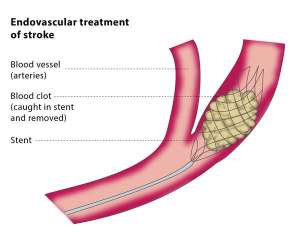
Since many individuals get strokes these days, improving stroke care is crucial. I am thrilled to share my knowledge of the exciting new research directions that might one day revolutionize stroke prevention, treatment, and rehabilitation. Stroke is a debilitating illness that affects millions of people globally. Despite continued research efforts, there is hope for improved outcomes and a better quality of life for stroke survivors. Stroke remains an important public health concern.
The creation of neuroprotective techniques to preserve brain tissue and reduce damage after a stroke is one field of study that has a lot of promise. Preclinical research has demonstrated the potential of neuroprotective medicines, including as medications that address excitotoxicity, oxidative stress, and inflammation, to reduce the size of stroke lesions and enhance functional results. Furthermore, there are promising opportunities for improving recovery and fostering neuroplasticity following a stroke using neuroprotective medicines that take use of the brain's inherent healing mechanisms, such as stimulating neurogenesis and synaptogenesis.
Another promising field of study for the treatment and rehabilitation of stroke victims is stem cell therapy. Stem cells may be able to replace damaged brain tissue and encourage regeneration after a stroke because of their amazing capacity to specialize into a variety of cell types, including neurons. Positive outcomes have been shown in clinical trials examining the safety and effectiveness of stem cell transplantation in stroke patients; certain studies have showed improvements in motor function, cognitive function, and overall quality of life. To improve stem cell-based treatments and investigate their long-term impacts on stroke recovery, more investigation is required.
Stroke research is also seeing a rise in the use of personalized medicine techniques, with a focus on adjusting treatment plans to meet the unique requirements and features of each patient. Researchers are now able to distinguish between many subtypes of stroke, each with unique underlying processes and treatment responses, thanks to developments in genetic medicine, biomarker identification, and imaging technologies. Personalized medicine techniques seek to enhance patient care and treatment results by gaining a knowledge of the distinct genetic, biochemical, and clinical aspects that influence stroke risk and recovery.
Stroke research is progressing due to multidisciplinary cooperation and emerging technology, in addition to these specialized study fields. Technology is changing how we approach stroke prevention, treatment, and care delivery. Examples include wearables and mobile health applications for remote monitoring and rehabilitation, as well as artificial intelligence and machine learning algorithms for early detection and diagnosis of stroke.
The significance of integrating clinical research findings and guaranteeing fair access to state-of-the-art therapies and interventions for all stroke victims cannot be overstated as we consider the direction that stroke research will take. Through research funding, promoting cooperation between scientists and clinicians, and emphasizing patient-centered strategies, we can keep progressing in our efforts to lessen the impact of stroke on people, families, and society at large.
In conclusion, cutting-edge research initiatives that are deepening our comprehension of the fundamental causes of stroke and investigating novel therapeutic modalities are contributing to a promising future for stroke care. As a neurosurgeon, I am devoted to improving stroke care for patients globally and am upbeat about the revolutionary possibilities of current research activities.




 DR Congo thwarts Kinshasa 'coup attempt': army
DR Congo thwarts Kinshasa 'coup attempt': army
 Media has made good progress in Ghana — Frema Opare
Media has made good progress in Ghana — Frema Opare
 E/R: We will demonstrate against our parliamentary candidate for disappearing af...
E/R: We will demonstrate against our parliamentary candidate for disappearing af...
 Kotokuom elders issue ultimatum to Kwaku Boah to stop defaming Atwima Agogohene ...
Kotokuom elders issue ultimatum to Kwaku Boah to stop defaming Atwima Agogohene ...
 W/R: Tragic premix explosion injures 16 in Ngyirasia
W/R: Tragic premix explosion injures 16 in Ngyirasia
 Election 2024: NDC pledges to scrap betting tax, targets 80% youth support
Election 2024: NDC pledges to scrap betting tax, targets 80% youth support
 Mahama was a one-term president because he was incompetent and brought untold ha...
Mahama was a one-term president because he was incompetent and brought untold ha...
 Blame IMF programme for Cedi's decline —Prof Bokpin
Blame IMF programme for Cedi's decline —Prof Bokpin
 Court denies Kasoa soldier killer bail
Court denies Kasoa soldier killer bail
 Ahmed Suale's killers will be brought to justice no matter how long it takes - A...
Ahmed Suale's killers will be brought to justice no matter how long it takes - A...
